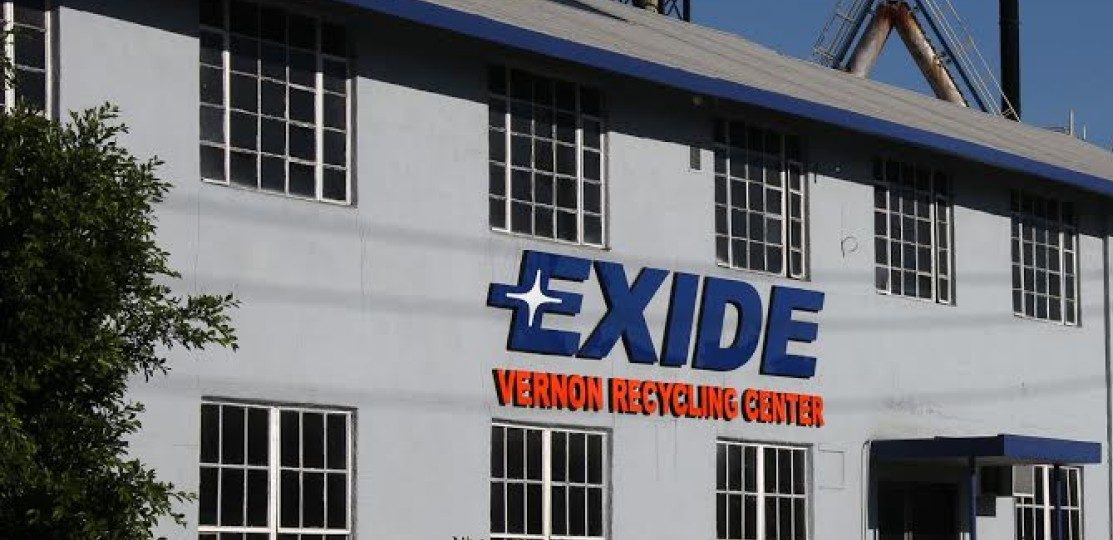[dropcap size=big]T[/dropcap]he L.A. County Board of Supervisors voted Tuesday to release $5.2 million for the ongoing lead contamination cleanup efforts stemming from the closed Exide battery recycling facility in the city of Vernon. The leak affected hundreds of thousands of people in parts of Southeast and East L.A. As of last year, only a few hundred of those homes had been cleaned by the California Department of Toxic Substances Control.
“We need as much money as we can get,” says Terry Gonzales, a Boyle Heights resident and activist for Exide cleanup efforts. “But it’s really unclear to us as a community how that money is being spent. It’s unclear how much money is really going to the cleanup.”
Gonzales is worried that a large portion of the $5.2 million will go towards repaying that loan of $176.6 million, money which she and other activists argue isn’t being properly spent and allocated, and not towards actual cleanup efforts. She accuses DTSC of sitting on the $176.6 cleanup loan, and not actually using it for toxic cleanup efforts.
The new money actually comes from a settlement reached by multiple local and state agencies over the 2015 natural gas leak in Porter Ranch that fined the company responsible, SoCal Gas, $119.5 million for the largest gas leak in U.S. history. The Exide cleanup has so far been the largest environmental toxins cleanup in California history.

[dropcap size=big]C[/dropcap]losed in 2015 after coming under investigation under the U.S. Attorney’s Office, Exide had been been spewing lead and arsenic particles from the facility’s smelters for decades – contaminating air, soil, and groundwater in Vernon, Boyle Heights, Commerce, Maywood, Huntington Park, Bell, and parts of East L.A. – and affecting hundreds of thousands of people. The effects of lead poisoning include, high blood pressure, an increased risk of stroke or heart attacks, kidney disease, risk of miscarriages in pregnant women, an increased risk of developing learning problems especially in children early in their development, and an increased risk of cancer.
Exide, a company based out of Milton, Georgia, had been fined and monitored for years – led by efforts of community organizations – before its closure in 2015 by local, state, federal agencies for excessive emissions of toxins and improper storage of toxic substances. But even when they negotiated a settlement with the U.S. Attorney and admitted to felony violations, they managed to avoid criminal liability for their actions, and got away with only having to put up $9 million for cleaning up houses around the facility over a five year period.
'It’s crazy that people are still living in toxic homes.'
An estimated 10,000 homes, and hundreds of thousands of people, have been exposed to lead and arsenic pollution as a result of Exide’s activities. Exide disputes this – ignoring a plethora of studies of blood testings of community members showing high signs of lead levels in their blood – arguing that lead contamination is a result of lead-based paint in homes, not toxins imbedded in the soil from lead dust particles from their plant.
At a community meeting last month about the ongoing Exide cleanup efforts, James Dahlgren, a medical doctor who studies toxic chemical exposure, compared the Exide lead contamination to the Chernobyl disaster. Chernobyl is an infamous incident from 1986 when a nuclear reactor in the Soviet Union imploded, causing widespread radiation poisoning and forcing residents of cities nearby the nuclear facility to abandon their homes and those cities for good.
In 2016, former Governor Jerry Brown released $176.6 million to DTSC from the state’s general fund as a loan to expedite cleanup efforts. Community activists say that DTSC is still moving too slowly and facilitating cleanups ineffectively, leaving people still in danger of lead and arsenic poisoning. They are calling on the state to sue Exide to appropriate more money for cleanups, and open the company up to suits from community members to recuperate money for health damages.
After years of fines and studies showing the health effects of the facility, and four years after its closure and cleanup efforts began, Gonzales says, “It’s crazy that people are still living in toxic homes.”
RELATED: Record-Breaking Settlement in Aliso Canyon Methane Leak ~ Are We Safe from ‘Routine’ Toxic Leaks?







